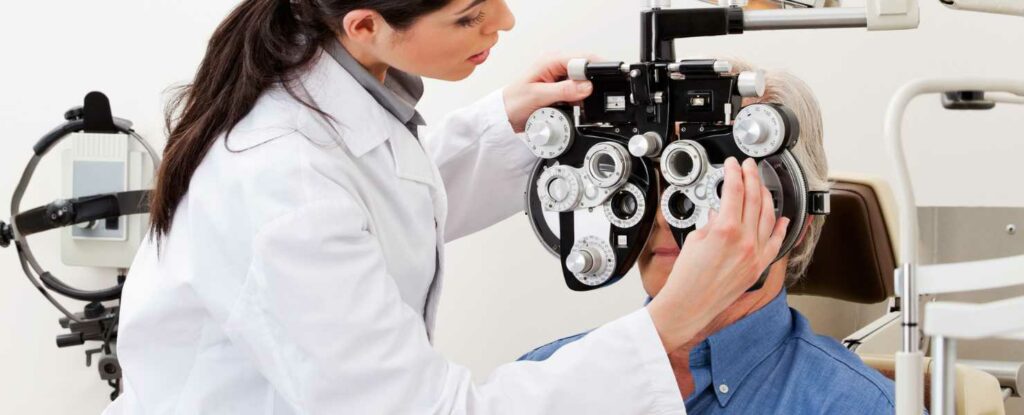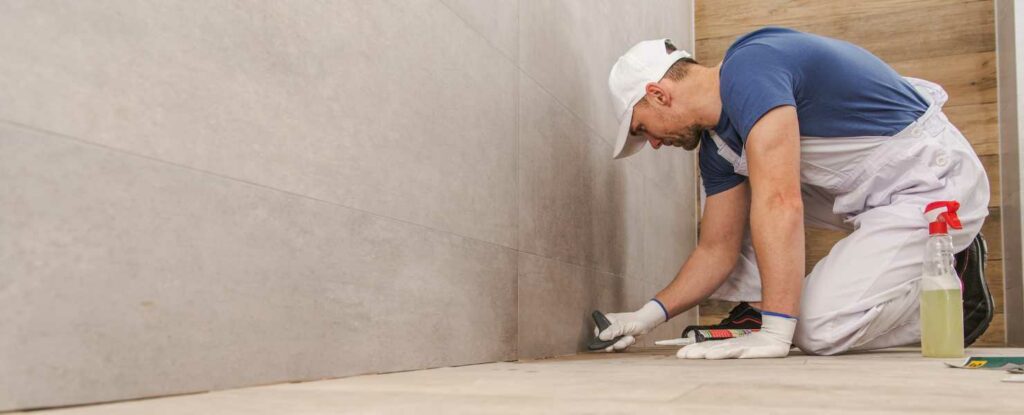When Evelyn Sheaves turned 75, her children, David and Elizabeth, both in their 50s, asked her if she would consider living in a senior living facility or a retirement community for older adults. Evie, as her friends call her, understood why her kids would ask her this. She remembered what it was like taking care of her own mother as she seasoned into her golden years and the hardships it placed on her and her family at the time.
But unlike her mother, who had an array of health problems including diabetes, arthritis, and early onset dementia, Evie was feeling pretty good for her age. With no major health concerns she decided to stay living on her own in the house she’s lived at for 40 years in the suburbs of Atlanta, Georgia.
“I’m in better shape now than I was 20 or 30 years ago!” she says. The key to getting older, she claims, is about maintaining a routine, having a good community of people around you, and not eating too much of ‘the bad stuff.’ “Though I still love a glass of whiskey and a cigarette now and again,” she says with a laugh.
For older adults like Evie, remaining independence is imperative to feeling healthy and empowered as they age. Though she understands why many older adults choose to live in retirement communities and senior living facilities, she says that lifestyle just isn’t for her. “I have a good routine going. I get up and walk or run every morning before I have coffee. Then I get in the garden and spend a few hours there. I’ve been doing that for years now. It keeps me young.”
Evie might be onto something. Extensive research backs up Evie’s claims that staying fit, being part of a community, and eating well are all part of how to maintain independence as you age.
“It comes down to daily behavior and the choices we make,” says Elissa Epel, a professor of psychiatry at the University of California, San Francisco (UCSF), who studies stress and aging. “We have a growing set of studies of people from around the world showing that aging is not just an aspect of genetics but of how we live.”
Let’s take a look at a few solutions that can help you stay independent as you age.
Stay Active Physically
Staying physically active is one of the most crucial factors in maintaining independence as we age. Regular exercise is beneficial to health in numerous ways, from improving cardiovascular function and maintaining a healthy weight to enhancing mobility and flexibility.



In the context of ageing, regular physical activity can help prevent common problems such as muscle weakness and balance issues, reducing the risk of falls – a major concern for older adults. Moreover, an active lifestyle can contribute to a senior’s ability to perform everyday tasks independently, such as household chores, shopping, or gardening, thereby significantly enhancing their sense of self-sufficiency.
Activities don’t need to be strenuous to be beneficial. Low-impact exercises, such as walking, swimming, and yoga, can be just as effective. Also, activities such as gardening not only provide physical exercise but also have a therapeutic effect on the mind.
However, before embarking on any new exercise routine, it is essential to consult with a healthcare provider. They can provide guidance on what type and amount of exercise is appropriate, considering the individual’s overall health, fitness level, and any existing medical conditions.
Stay Socially Engaged
Social connections can greatly enhance our quality of life at any age, but they’re especially important as we get older. Social interactions can stimulate our minds, lift our spirits, and even improve our health. Studies have found a correlation between social engagement and longevity, mental health, and physical wellness.
Maintaining friendships, family connections, and community ties can provide a sense of belonging, purpose, and joy. Regular interactions also ward off feelings of loneliness and isolation, which can have a significant impact on both mental and physical health.



It’s equally important to remember that social engagement isn’t about the quantity of interactions, but rather the quality. Meaningful connections that make you feel understood, valued, and loved are what truly matters.
But what does staying socially engaged entail? It could be as simple as regular phone or video calls with family and friends, participating in group activities such as clubs or classes, or getting involved in volunteer work. These interactions provide opportunities to share experiences, learn new things, and form new friendships. You can discover some ideas on this list of the best hobbies for adults.
For those who have mobility or health issues that limit their ability to leave home, technology can be a game-changer. Online platforms allow older adults to connect with others, engage in virtual activities, or learn new skills right from the comfort of their own homes.
Finally, it’s essential to remember that it’s never too late to make new social connections. Whether it’s reconnecting with old friends, making new ones, or even adopting a pet, every interaction adds to our social wellbeing.
Remaining socially engaged as we age can help us retain our sense of independence and zest for life, promoting a healthier, happier, and more fulfilling aging journey.
Maintain a Healthy Diet
Proper nutrition is a cornerstone of health at any age, but it is especially crucial as we grow older. A balanced diet not only keeps the body functioning optimally, but it can also ward off many age-related diseases such as osteoporosis, diabetes, and certain types of cancer. Eating a variety of fruits and vegetables, lean proteins, whole grains, and low-fat dairy can provide all the necessary nutrients required.



Moreover, older adults may have specific dietary needs, like increased calcium for bone health, or reduced sodium to manage blood pressure. It’s also important to monitor portion sizes and caloric intake as metabolism slows down with age, to maintain a healthy weight.
Lastly, staying hydrated is essential, as dehydration can lead to confusion, a common problem in the elderly.
Remember, though, everyone’s nutritional needs are unique. Consulting with a dietitian can provide personalized guidance to ensure a balanced and enjoyable diet that caters to individual tastes and dietary restrictions.
If you need some tips, we have some great articles for people of every age. Fueling your Fifties, Spices for your Sixties, Sustaining your Seventies, and Energizing your Eighties.
Keep the Mind Sharp
Cognitive health is a critical aspect of maintaining independence as we age. Engaging in activities that stimulate the mind can help improve memory, focus, and problem-solving abilities. This could be anything from reading, writing, and puzzle-solving to taking up new hobbies or learning a new language.



A growing body of evidence also suggests that social engagement can help keep the mind sharp. Regular interaction with friends and family, participation in group activities, and even volunteering can provide mental stimulation and a sense of belonging and purpose.
Furthermore, restful sleep is vital for cognitive health. Establishing regular sleep patterns and ensuring a conducive sleep environment can improve sleep quality. If persistent sleep problems occur, it’s important to seek medical advice as it may indicate an underlying health condition.
Have Regular Health Checks
Regular health checks can help detect potential health issues early when they’re easier to manage or treat. They’re an opportunity for doctors to assess the risk of future medical problems and advise on lifestyle changes to prevent them.



For older adults, in addition to standard physicals, certain screenings become particularly important, such as those for bone density, cholesterol levels, colon cancer, breast or prostate cancer, and eye and hearing exams.
Immunizations are also key for preventing diseases like pneumonia and seasonal flu, which can be severe or even deadly for seniors.
Regular dental, hearing, and vision check-ups are also important as these can impact quality of life and independence.
Keep Your Home Safe & Sound
Home is where we feel most secure, but for older adults, it can also pose many risks. Falls are a leading cause of injury among seniors, but many of them can be prevented with some adjustments at home.
Removing tripping hazards like loose rugs, installing handrails and grab bars in critical areas like bathrooms, improving lighting, and keeping commonly used items within easy reach can significantly enhance home safety.



Modern technology can also contribute to safety. For example, emergency response systems, automatic shut-off devices for stoves, and sensors that alert family members in case of unusual activity.
Keeping the home safe not only prevents injuries but also gives seniors the confidence to continue living independently.
Embrace Technology
Technology has an increasingly prominent role in our lives, and this extends to its capacity to support independence in our later years. As we age, certain aspects of life may become more challenging. However, innovative solutions can help manage these challenges, allowing us to maintain our self-reliance.
Assistive technologies, for example, can support mobility. Devices such as stair lifts, grab bars, and mobility scooters can enhance personal safety and make it easier to move around both at home and in the community. High-tech solutions, like GPS trackers and smart canes, can provide added reassurance for individuals and their families.



Beyond physical mobility, technology can help manage daily tasks that are essential to independent living. There are numerous apps designed to support health and wellness. These apps can remind us to take our medication, keep track of doctor’s appointments, and even monitor vital signs. WayWiser, for instance, is designed to provide all of these features and more in one convenient platform, enabling older adults and their families to manage care in an efficient and streamlined way.
Staying in touch with family and friends is a key aspect of independent living, and once again technology comes to the rescue. Social media platforms, video call apps, and instant messaging allow us to maintain social connections, even when we can’t be physically together. This social interaction can be crucial in maintaining mental and emotional wellbeing, which in turn supports overall health and independence.
While learning to use new technologies can be daunting, many are designed with user-friendly interfaces and easy-to-follow instructions. For those who need a little extra help, family members, caregivers, or even local community programs can often provide guidance.
Concluding Thoughts on Maintaining Independence As You Age
Aging is a natural part of life, and while it may come with its challenges, it also brings wisdom, perspective, and the opportunity for continued growth. The key to maintaining independence as you age lies not in resisting change, but in embracing it. It’s about adapting, learning new things, and making the most of the resources available to you.
Technology like WayWiser can play a significant role in helping you maintain your independence, ensuring you’re never alone in your journey. However, it’s just as important to nurture your mental and physical health, engage with your community, and fill your days with activities you love.
Remember, independence doesn’t mean doing everything alone—it means being in control of your choices and living life on your own terms. By staying proactive, flexible, and resilient, you can age with grace and continue to enjoy a rich, fulfilling life. After all, independence isn’t about age—it’s about attitude.







